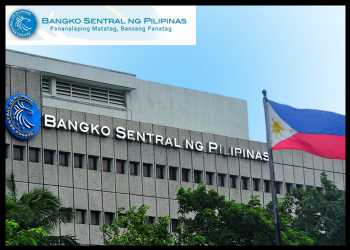Philippine Central Bank Unexpectedly Raises Key Interest Rate

The Philippines’ central bank raised its key interest rate in a surprise move on Thursday to curtail broadening inflationary pressures, as policymakers assessed that the strong rebound in the domestic economy this year can tolerate further tightening of monetary policy.
The Monetary Board, led by Governor Felipe Medalla, decided to raise its benchmark overnight reverse repurchase facility rate by 75 basis points to 3.25 percent, the Bangko Sentral Ng Pilipinas said.
The latest hike was a surprise off-cycle decision that came after U.S. inflation data a day earlier, raised expectations of more aggressive Federal Reserve tightening and other Asian central banks such as those of Singapore and South Korea lifted rates.
The previous change in the rate was a quarter-point increase in June after a similar move in May, which was the first rate hike since 2018.
Interest rates on the overnight deposit and lending facilities were also raised by full basis points to 2.75 percent and 3.75 percent, respectively.
By raising key rates, the Monetary Board aims to anchor inflation expectations further and temper mounting risks to the inflation outlook.
In particular, policy action is intended to help manage spillovers from other countries that could potentially dis-anchor inflation expectations, the bank said.
As a result of persistent supply-side pressures on commodity prices, the Monetary Board will continue to endorse timely non-monetary government interventions.
ING economist Nicholas Mapa said the two surprises were that the rate hike was more forceful than previously projected 50bps hike, and that it was delivered a good five weeks ahead of schedule.
“We expect BSP to hike again at least one more time in 3Q with the possibility of further tightening should inflation continue to remain stubbornly high,” Nicholas Mapa, an economist at ING said.
“PHP will get an immediate reprieve in the short term but chronic trade deficits could mean that any rally in the currency may be capped.”
The next policy meeting is scheduled for August 18.
Source: Read Full Article
